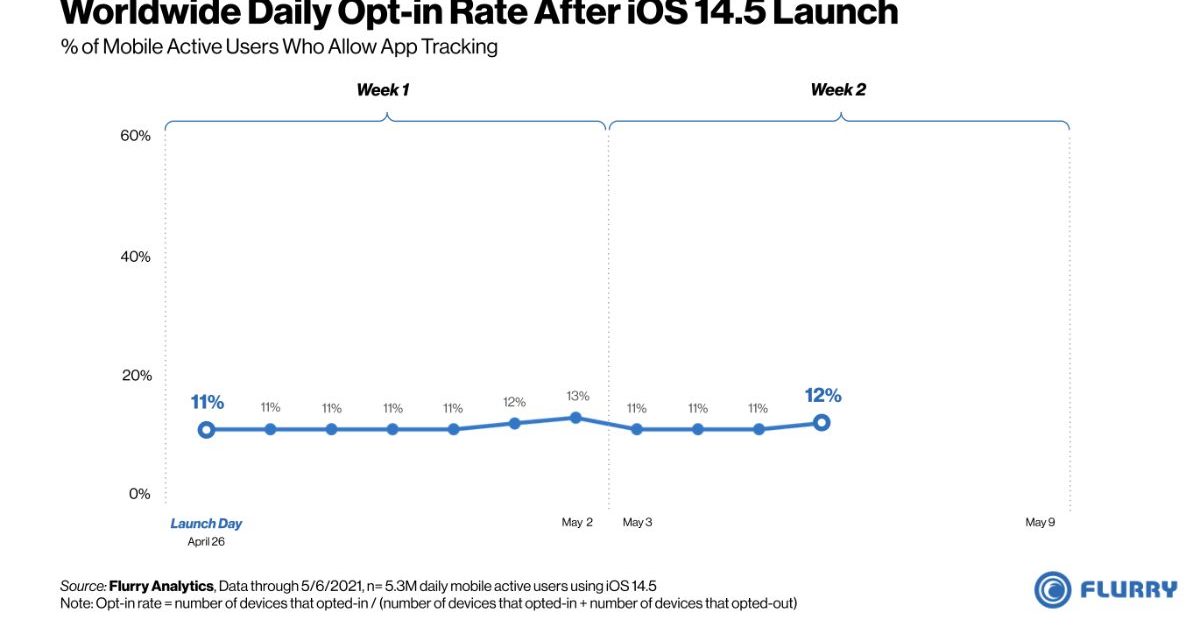As of May 3, 12% of iPhone users in the U.S. have chosen to opt into app tracking after updating their device to iOS 14.5, according to Flurry Analytics. That’s based on a sampling of 2.5 million daily mobile active users.
Until now, apps have been able to rely on Apple’s Identifier for Advertiser (IDFA) to track users for targeting and advertising purposes. With the launch of iOS 14.5 this week, mobile apps now have to ask users who have upgraded to iOS 14.5 for permission to gather tracking data.
Flurry says that, with opt-in rates expected to be low, this change is expected to create challenges for personalized advertising and attribution, impacting the US$189 billion mobile advertising industry worldwide.
Flurry Analytics, owned by Verizon Media, is used in over 1 million mobile applications, providing aggregated insights across 2 billion mobile devices per month.
The change to iPhone software will make it harder for companies like Snap Inc. and Facebook and their advertisers to track people across apps. Developers must ask users to share their device’s unique identifier for advertising purposes through a prompt.
IDFA is the only means for advertisers to precisely target and track users within apps on iOS devices. Think of an IDFA as something like a cookie that is tied to devices instead of browsers, in that it enables an advertiser to get notified when a user of a phone has taken an action like clicking on their ad in a browser and then installing, using, or interacting with ads in their app.
As noted by the Invoca Blog, the identifier is used in non-browser apps, which never had support for cookies. IDFAs only provide advertisers data in aggregate and no individually identifiable data is available.
Apple says it “does not access or use the IDFA on a user’s device for any purpose.” The company says its aim is to protect the privacy of its users and that iOS 14 gives users greater control over whether apps could link with third parties for the purposes of targeted advertising.
Article provided with permission from AppleWorld.Today



